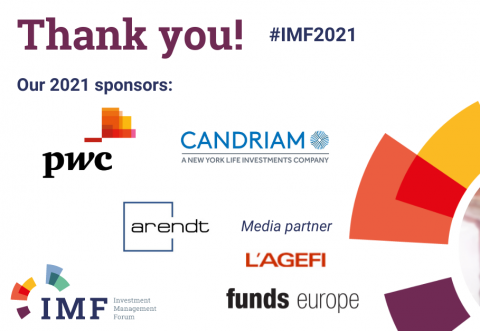Capital Markets Union
Building a Capital Markets Union (CMU) serving the needs of European citizens and businesses is as ambitious as it is essential: the effort will enable pensioners and savers to share in the upside of Europe’s economic recovery. In the process, European capital markets also become more efficient and better integrated. This long-term vision is key to financing European innovation and to supporting the transition towards a more sustainable economy.
Increasing retail investors’ participation in capital markets is an essential component for building an effective CMU. Improving access to financial and non-financial information and addressing the high data costs our industry is encountering, are also important steps towards a functioning CMU. All this, while maintaining and improving the attractiveness of the European investment management sector in today's global environment.
EFAMA prepared a list of key actions that are required to reach the CMU objectives from an investor perspective. We have also developed a specific Key Performance Indicator to measure year-on-year progress towards increasing retail participation in capital markets in each member state.
EFAMA's feedback on the EU Commission's consultation on the Capital Markets Union High Level Forum Final Report
Joint letter on the international competitiveness of the financial services sector
Policy Recommendations for the Next European Commission
Annual European Asset Management Report - Report highlights key developments in the European fund industry
The European Fund and Asset Management Association (EFAMA) has released the 13th edition of its Asset Management in Europe report, which provides in-depth analysis of recent trends in the European asset management industry, focussing on where investment funds and discretionary mandates are managed in Europe.
IMF 2021: Thought-provoking discussions and insightful presentations
This year’s Investment Management Forum featured an incredible number of high-level speakers and thought-provoking discussions.
.png)
EFAMA welcomes proposal on affordable consolidated tape - The association continues to urge action on market data costs
EFAMA is pleased to read today the details of a robust MiFIR proposal from the European Commission addressing key areas of reform around the creation of a consolidated tape (CT), along with adjustments to transparency requirements on trading.
Charting the Course: Unlocking Retail Participation in EU Capital Markets
At the Roundtable on the distribution of retail investment products on 18 July 2023, the European Commissioner for Financial Stability, Financial Services and Capital Markets Union, Mairead McGuinness, invited the European Banking Federation (EBF), the European Fund and Asset Management Association (EFAMA) and Insurance Europe to advance an industry-driven process to explore common solutions aimed at increasing retail participation in EU capital markets.
The Capital Flywheel
The European Capital Markets Report is a joint initiative authored by Oliver Wyman and co-developed by EFAMA, the European Banking Federation (EBF) and the Federation of European Securities Exchanges (FESE). This report reviews progress made towards the CMU and provides recommendations on how to improve the competitiveness of European capital markets.
Unlocking private investment to fund Europe's triple transitions
EFAMA’s publication lays out the asset management sector’s policy priorities for the next five years, building on the in-depth expertise of our members. This includes practical recommendations for keeping Europe competitive and developing deeper, more integrated and liquid capital markets in Europe.
The recommendations focus around four main objectives:
































